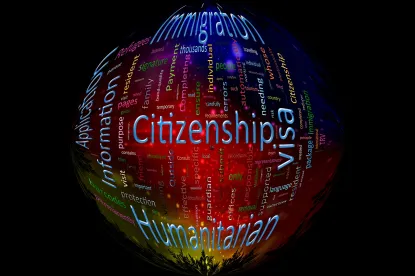The actions will prioritize immigration enforcement, offer temporary work authorization to undocumented immigrants, and implement changes that benefit highly skilled workers.
On November 20, U.S. President Barack Obama announced a series of executive actions that the administration will implement to enhance immigration enforcement, offer temporary work authorization and a reprieve from deportation to thousands of undocumented immigrants, and implement certain other administrative fixes to the legal immigration system, several of which benefit highly skilled workers. It is important to understand that the details regarding many of these actions will not be known until the agencies in charge of implementation issue policy guidelines and proposed regulations. The Department of Homeland Security will begin to implement these actions in early 2015.
The following outlines the main actions that President Obama announced.
Enforcement and Worksite Enforcement
-
The president has outlined three main priorities with respect to immigration enforcement. This means that the administration will direct Immigration and Customs Enforcement (ICE) to concentrate primarily on these groups in the context of targeted removal efforts:
-
Suspected terrorists, convicted felons (including aggravated felonies), convicted gang members, and people apprehended on the border
-
People convicted of serious or multiple misdemeanors, and very recent entrants (i.e., those who entered after January 1, 2014)
-
Those who, after January 1, 2014, failed to leave under a removal order or returned after removal
-
-
The federal and local law enforcement partnership on immigration enforcement known as Secure Communities will be discontinued, and a new program called the Priority Enforcement Program will be introduced, presumably reflecting the immigration enforcement priorities outlined above.
-
An interagency working group will be created to handle certain worksite immigration compliance and enforcement matters. This group will include ICE, the Department of Labor (DOL), and the Office of Special Counsel for Immigration-Related Unfair Employment Practices (an office within the Department of Justice). This may well expand the nature and scope of the worksite investigations to which employers may be subject.
Work Authorization and Deferral of Deportation for Certain Undocumented Immigrants
-
Certain undocumented immigrants will have the opportunity to request temporary relief from deportation and work authorization if they come forward and pass criminal and national security background checks, pay their taxes, and pay a fee. This program will likely affect 4 to 5 million people. Those who qualify for this temporary relief include the following:
-
Parents of U.S. citizens or lawful permanent residents on the date of the announcement who are not enforcement priorities (as described above) and have been in the United States since January 1, 2010.
-
Individuals who arrived in the United States before turning 16 years old and before January 1, 2010, regardless of how old they are today. This, in effect, would lift the current age cap in the Deferred Action for Childhood Arrivals program.
-
-
It is anticipated that the Department of Homeland Security, or the interagency group mentioned above that will deal with worksite immigration compliance, will issue instructions to employers regarding the employment eligibility verification of individuals who have received work permits under this special deferred action program.
Administrative Improvements in Business Immigration
-
The Department of State and U.S. Citizenship and Immigration Services (USCIS) have been instructed to allocate immigrant visas in the employment and family-based preference categories so that all immigrant visas allocated by Congress are used in the fiscal year in which they are authorized. In addition, the Department of State will modify the way in which it makes immigrant visas available during a fiscal year. USCIS has been directed to work with the Department of State in this effort, and it is possible that a procedure will be proposed that allows for early eligibility of employment-sponsored green card applicants for filing applications for adjustment of status, the final stage in the green card process.
-
USCIS will propose a final rule that allows for work authorization for spouses of H-1B workers. It is unclear whether this will be limited to H-1B workers who are in certain stages of the green card process or applicable to a broader group of H-1B workers.
-
USCIS will finalize a long-awaited memorandum that provides guidance on the definition of “specialized knowledge” for the adjudication of L-1B intracompany transfer visas.
-
USCIS will expand the degree programs eligible for Optional Practical Training (OPT) employment authorization. Specifically, USCIS plans to propose that foreign students who possess an initial baccalaureate degree in a science, technology, engineering, or math (STEM) field and who are in the United States pursuing a degree in a different field, such as a Master of Business Administration, will be eligible for the STEM extension of OPT. USCIS also plans to extend the duration of OPT granted to students and graduates.
-
USCIS plans to provide more “stability” to beneficiaries of employment-based immigrant petitions by ensuring that such petitions remain valid despite changes in jobs or employers, including clarification of the “same or similar occupational classification” standard for adjustment portability determinations.
-
USCIS has been instructed to issue guidance that encourages the greater use of the National Interest Waiver green card category to accommodate entrepreneurs, researchers, inventors, and founders of companies. It is anticipated that the guidance will broaden the use of the category not only for self-employed entrepreneurs but also for established companies that sponsor key foreign employees involved in innovation, job creation, and other prospective benefits to the economy.
-
A “parole” and “parole-in-place” program will be created to allow certain entrepreneurs to remain in the United States when they have attracted funding for certain enterprises.
-
The Department of Labor has been instructed to issue regulations that streamline the Program Electronic Review Management labor certification program and to put this project on a fast track.
As discussed above, we will learn more details regarding these proposals when the agencies charged with implementation begin publishing proposed regulations and policies. There is a great deal of misinformation circulating, in particular, through various social media outlets, with respect to how these changes will operate and when they will become effective. Prior to taking any actions based on these executive actions, we urge clients and their employees to verify the information they receive and ensure it is reliable. We will monitor these developments and alert our clients as new details emerge.





 />i
/>i

